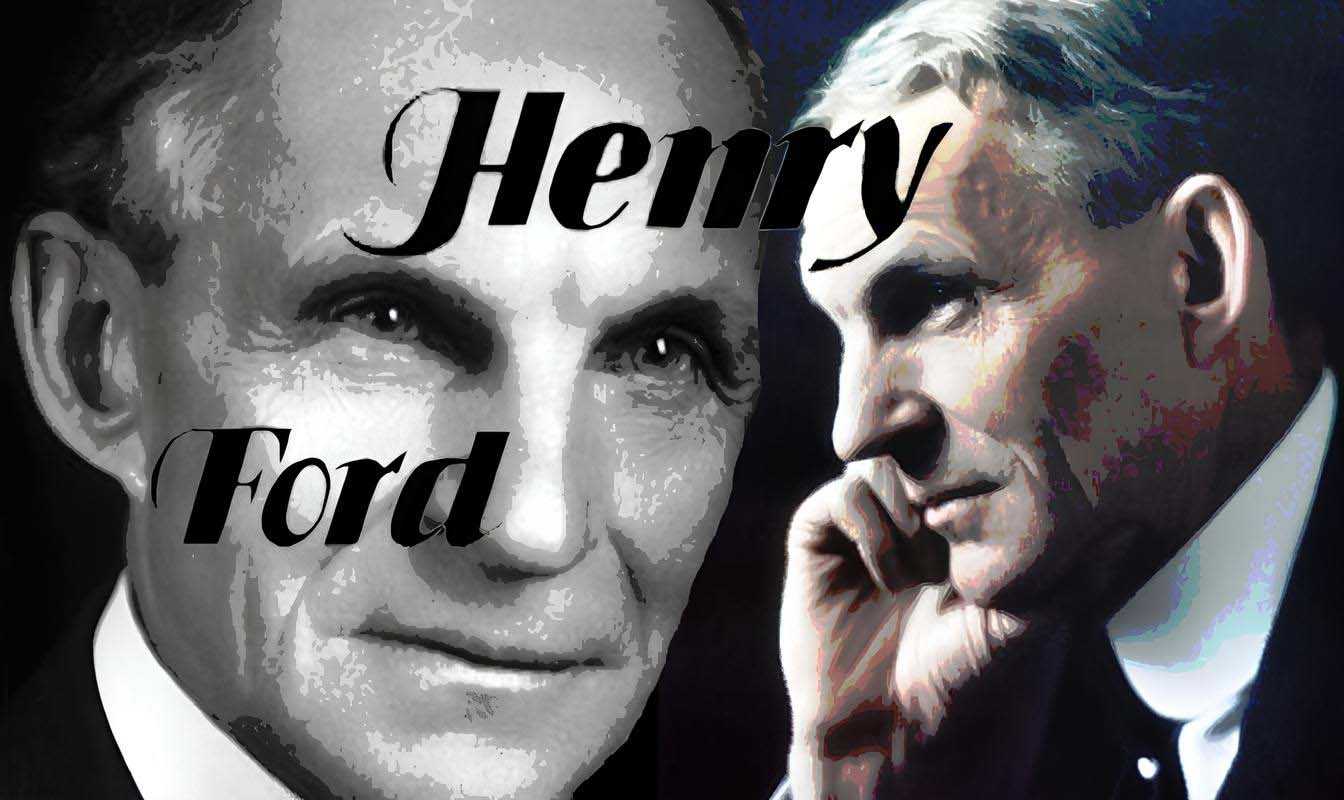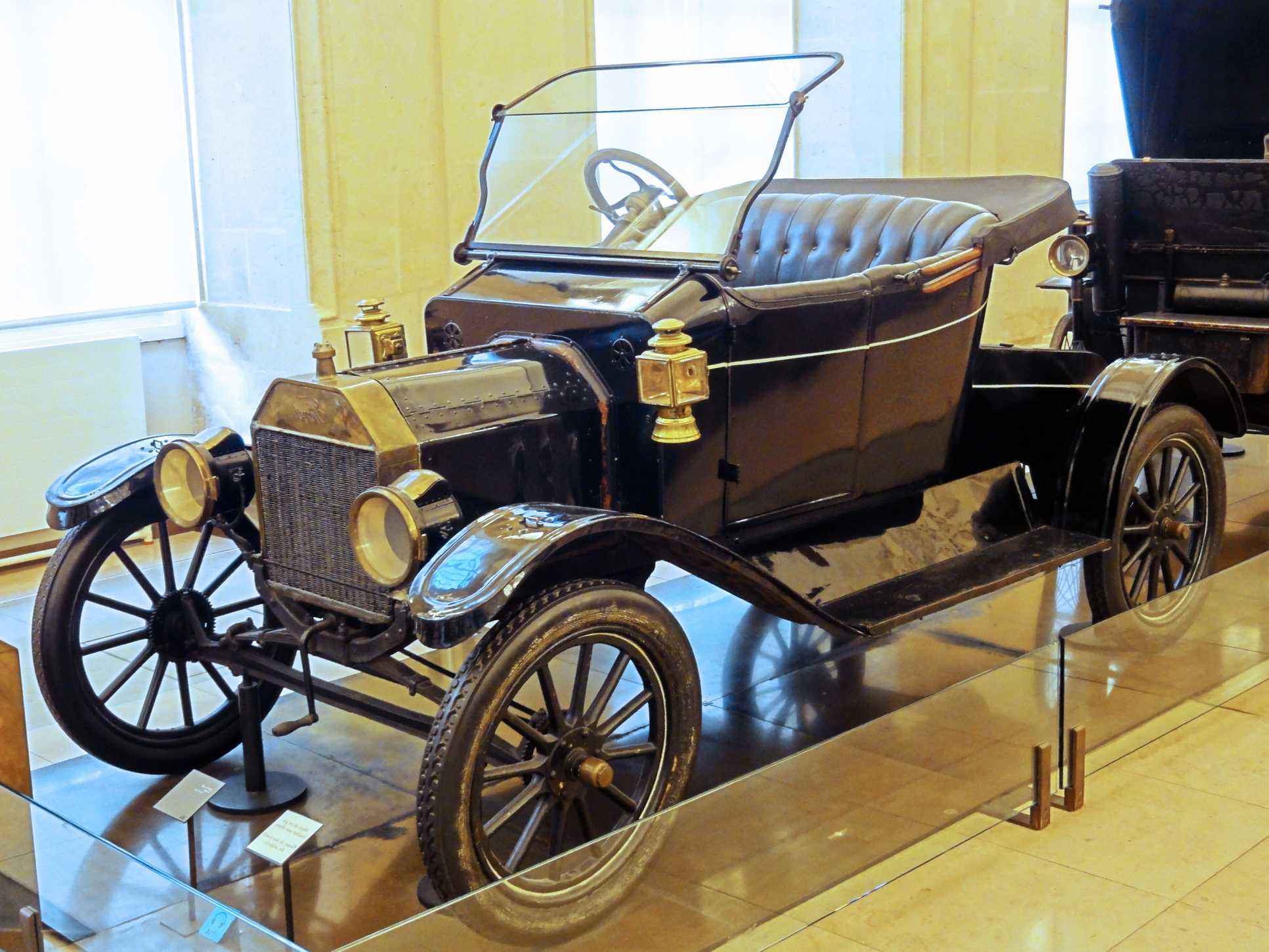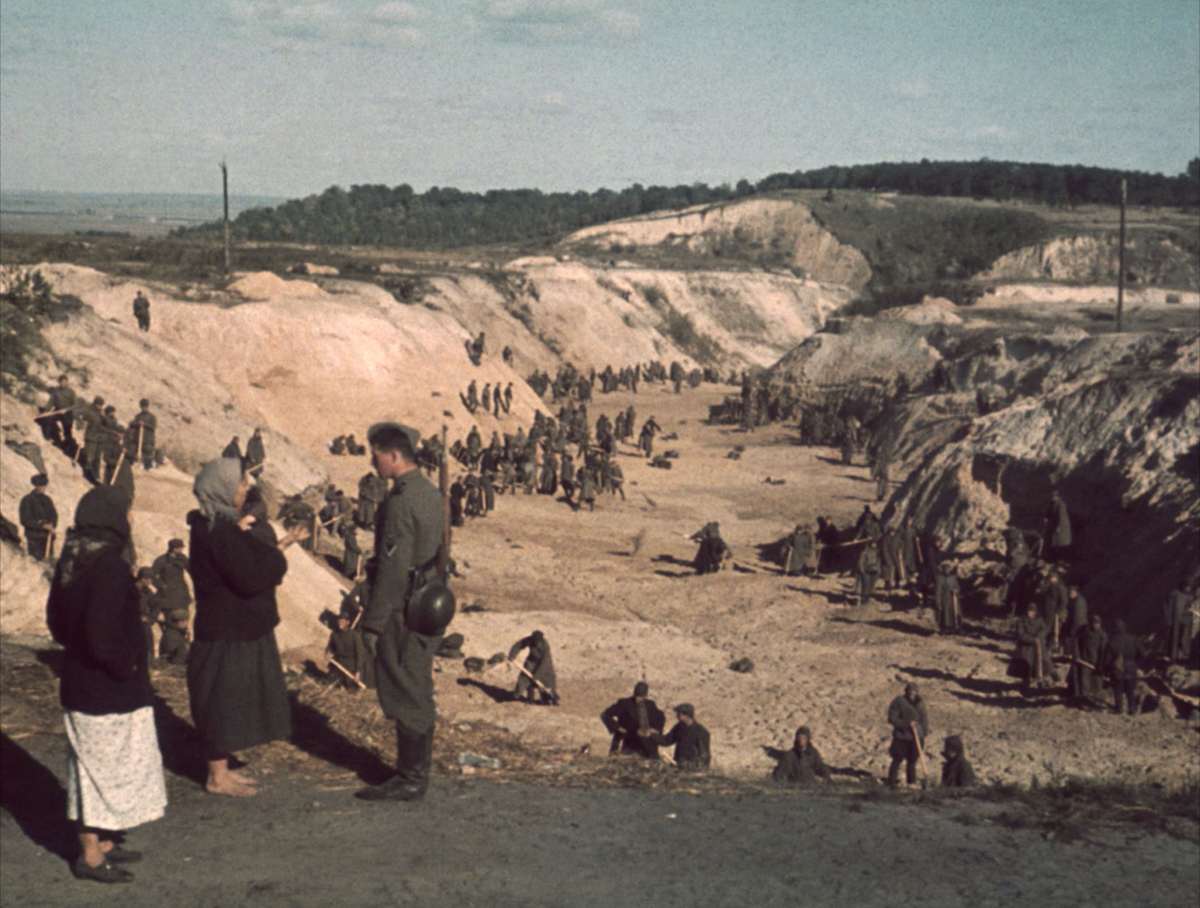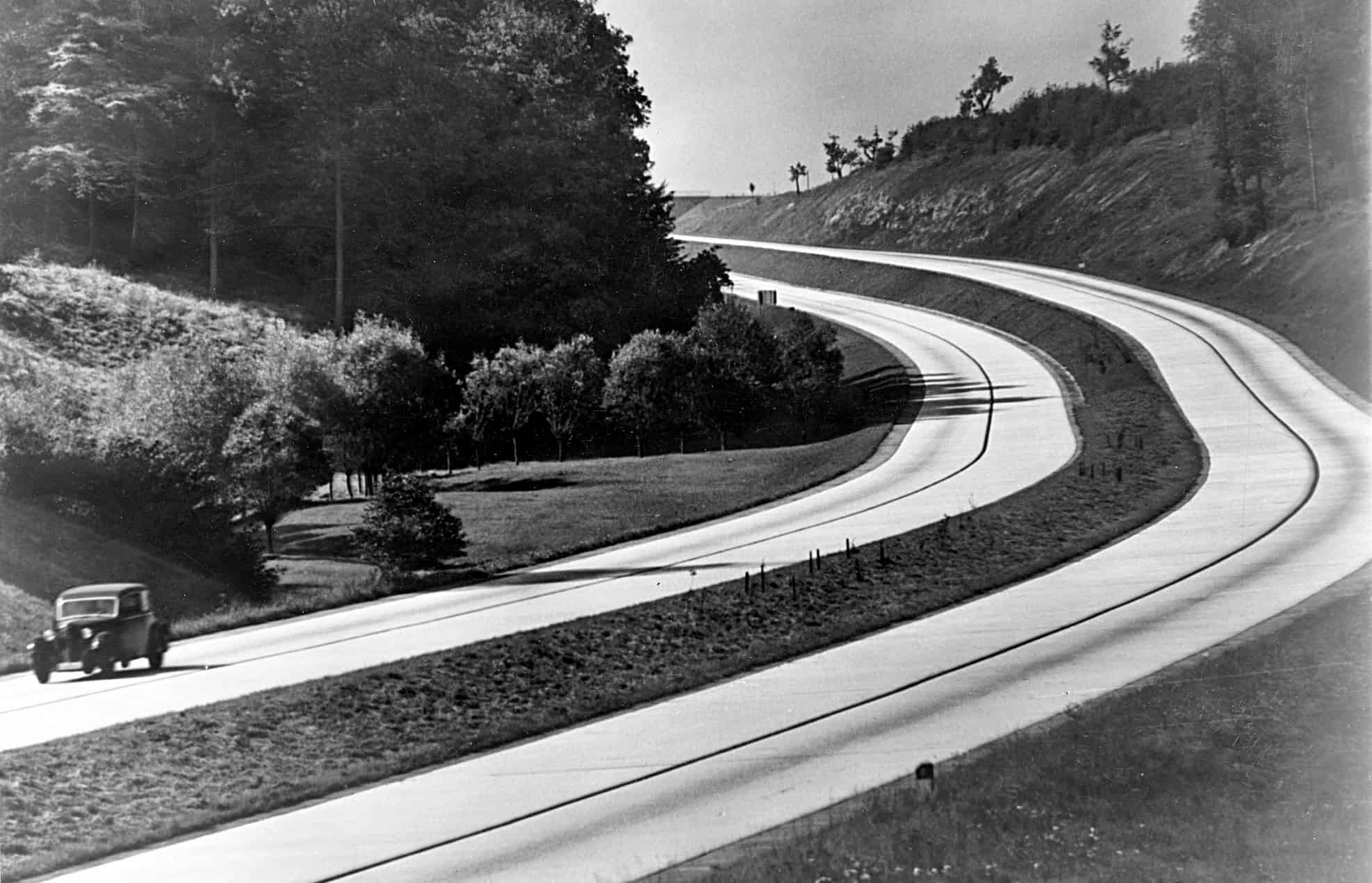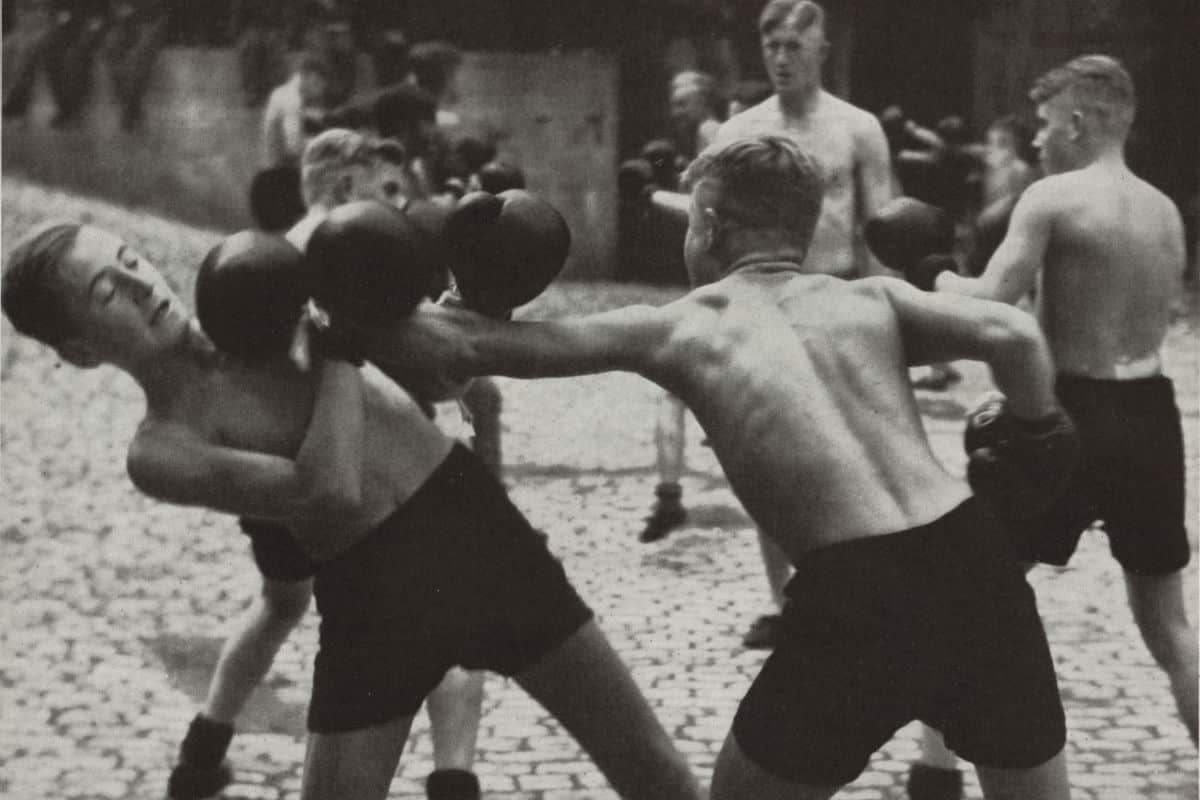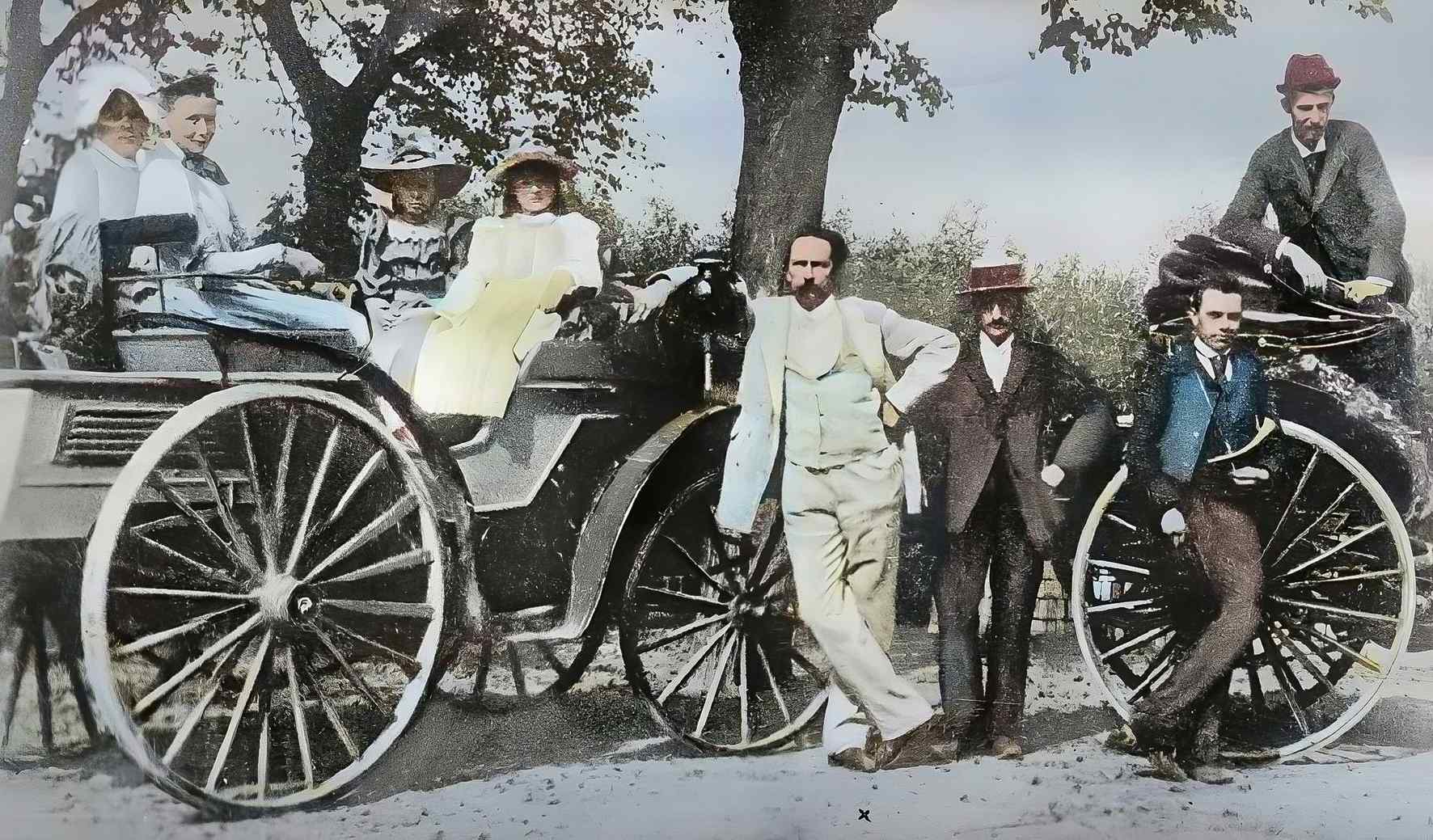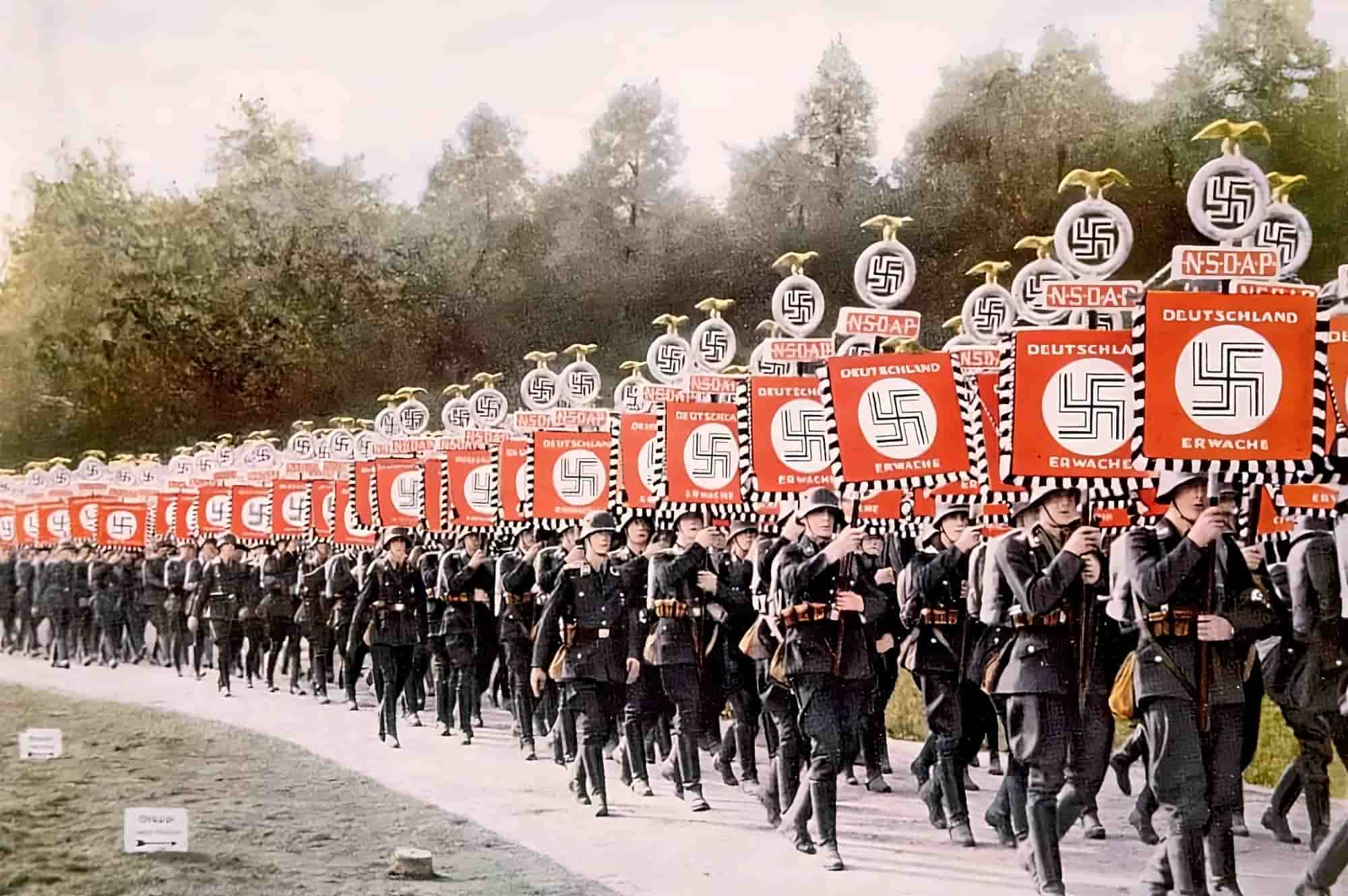Henry Ford was a leader in business and philanthropy who also inspired Hitler. As an American automobile manufacturer, Henry Ford won a special Nazi prize in 1938 for inspiring the German dictator with his anti-Jewish theses and for revolutionizing assembly line manufacturing. It was Henry Ford’s 75th birthday on July 30, 1938. The German Ambassador to Cleveland Karl Kapp gave the eulogy signed by Adolf Hitler, a longtime fan of the automaker Henry Ford, before an audience of almost 1,500 notable Detroiters.
When the crimson box with the golden Maltese cross surrounded by four miniature swastikas was unveiled in front of Ford’s eyes, he grinned with pride. Henry Ford received Nazi Germany’s highest honor for foreigners, the Grand Cross of the Order of the German Eagle, before anybody else in the United States.

In 1943, forced laborers from the Buchenwald concentration camp made up nearly half of the workforce at Ford’s Cologne subsidiary plant. “The assembly lines Ford would like to forget,” the headline proclaims.
Since the 1920s and 1930s, when Ford Motor Company fought with General Motors for the lucrative German market, Henry Ford had had strong connections with Germany. Adolf Hitler told a Detroit reporter in 1931 that he was inspired by Henry Ford’s anti-Semitic writings and that the American method of mass manufacturing was something he aspired to. The future Reich Chancellor already had a picture of the factory’s founder, Henry Ford, hanging on the wall next to his desk.
Logic and numbers
Henry Ford was admired by many as a generous donor. Many people who were underrepresented in the workforce, including African Americans and Eastern European immigrants, were recruited to work in his factories. They had excellent working conditions at his factories, with no one required to put in more than eight hours a day, five days a week.
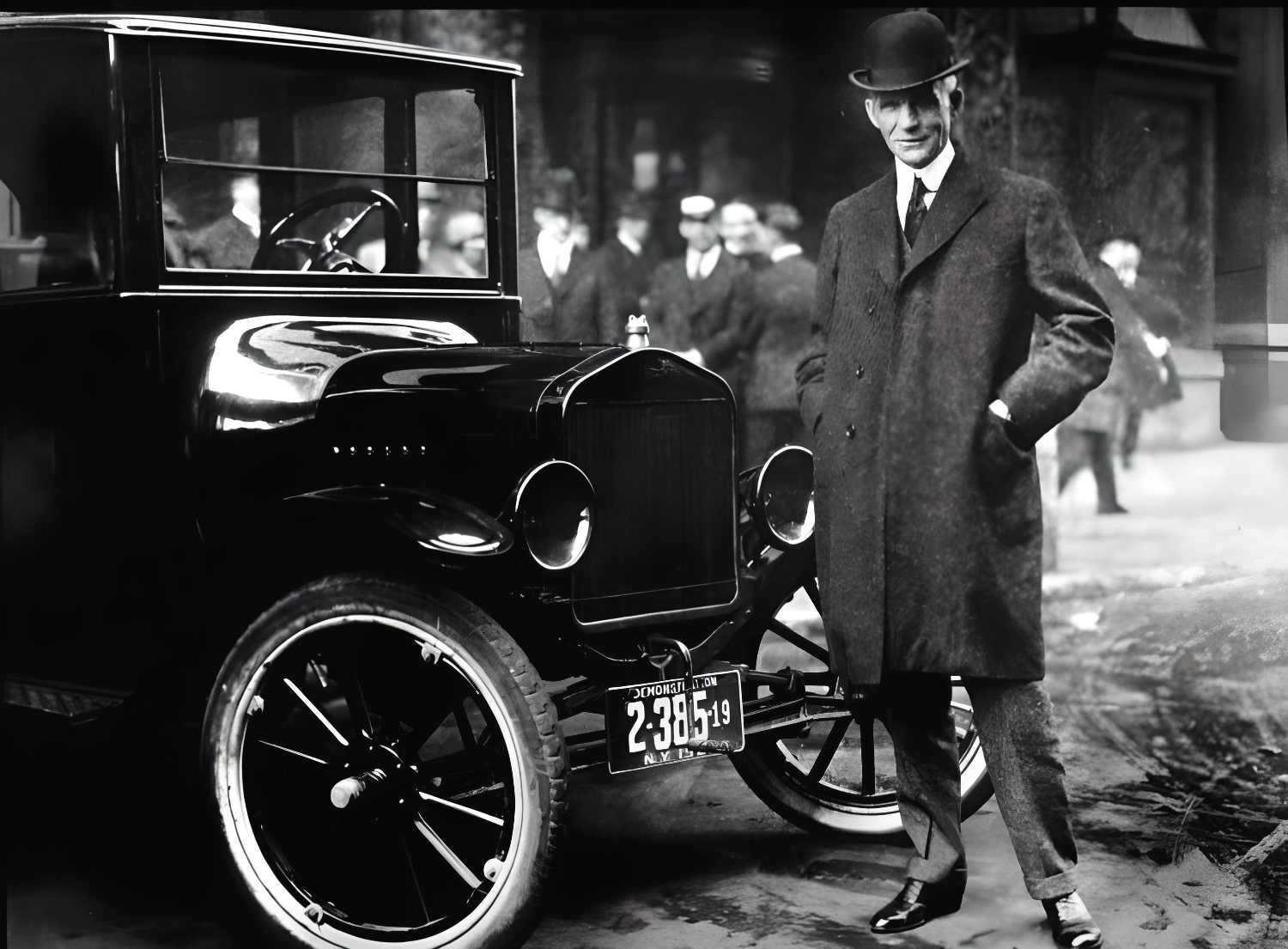
When many manufacturers were still paying their workers $1 per day for working 10-12 hour shifts, Ford was already paying $5 a day by 1914 and eventually $6 a day a few years later. Ford’s factories introduced a unique concept: The employees were expected to operate at their peak levels of productivity only after getting enough rest and focusing on their tasks at hand.
To be sure, Henry Ford wasn’t only motivated by a desire to do good. Now that they had disposable income and time on their hands, the businessman’s employees were now his clients. Ford automobiles were very affordable because of massive manufacturing efficiencies. The manufacturers’ procedures were completely standardized and simplified. Production could be broken down into discrete phases with the advent of the assembly line, meaning that workers didn’t need extensive training.
The atmosphere at the factory was quite relaxing. Constantly bright and airy, they never seemed stuffy. According to Ford, there wouldn’t be any dark places in the factory where somebody might harbor negative ideas. Henry Ford was also a stickler for tidiness, and not only at the factory. In his autobiography “My Life and Work,” released in 1922, he argued that “You can’t have morals without cleanliness.”
Ford’s Gestapo
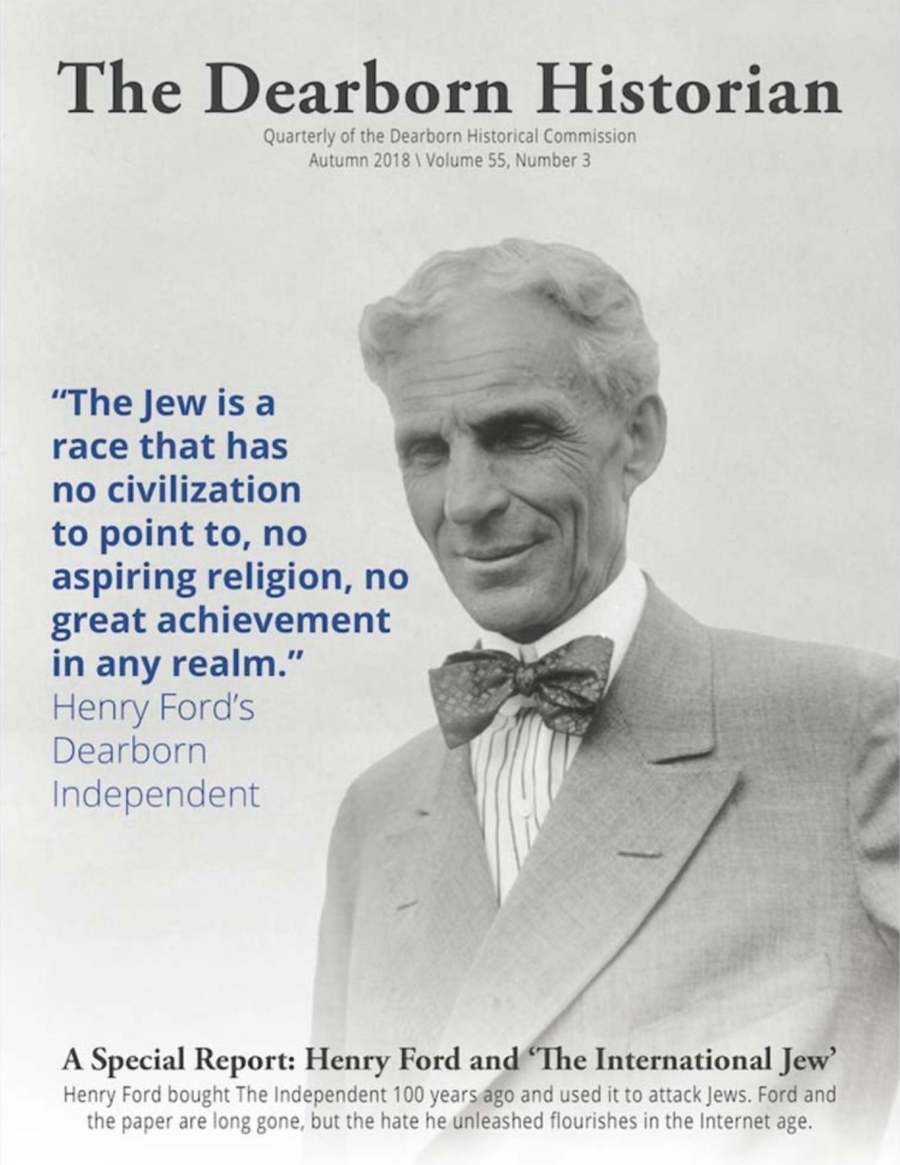
To work for Ford was a dream for many people, but it wasn’t without its drawbacks. Ford had a very specific sense of what it meant for an employee to be a “real American,” therefore the high minimum salary was contingent on meeting certain requirements. Ford specified in great detail the exact house furnishings, diet, and recreational activities that were required of all incoming immigrants.
For this reason, Ford Motor Company had its own Sociology Department to encourage and, more importantly, keep tabs on the employees’ personal lives. Employed sociologists would pay unexpected visits to the homes of employees in order to keep tabs on them. Disobedient workers had their pay docked if they were caught in the act.
Because Ford did not trust his son Edsel, he had a former prize boxer keep an eye on him around the clock.
Former boxer Harry Bennett ran the service department of Ford, which gained notoriety for its invasive monitoring practices. Bennett was well-connected in the criminal underworld of Detroit. He grew his office into an espionage and anti-union juggernaut, using ruthless force against union organizers and employees alike. During the mid-1930s, the group earned the unofficial moniker “Ford’s Gestapo” due to its history of brutality, which included the beating of nonviolent protestors.
Arguments against Jews
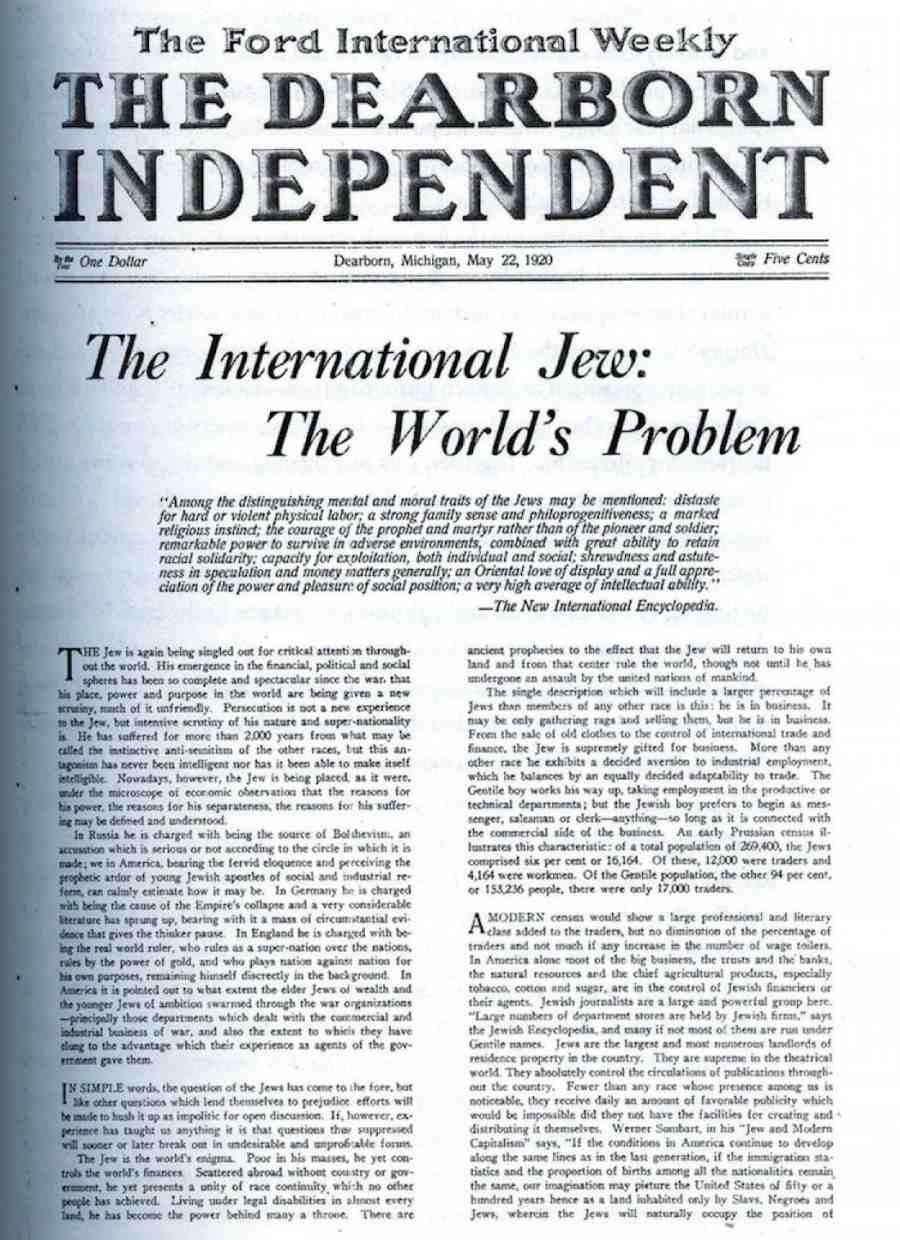
Henry Ford ran the Ford Motor Company from the outset like a tyrant. Probably because of this method of leadership, he was dubbed the “Mussolini of Highland Park” by the “New York Times” in 1928. So, Ford may have been “helpful” to his workers, but he also established his own surveillance state.
However, Ford not only carried himself like a dictator, but he was also a firm anti-Semite, much like Hitler. Ford’s newspaper, the Dearborn Independent, which he ran from 1919 to 1927, was an embodiment of this sentiment. Articles such as “More than any other race he [the Jew] exhibits a decided aversion to industrial employment, which he balances by an equally decided adaptability to trade,” portrayed the Jews as lazy and exploitative. A number of legal challenges to the newspaper’s content led to Ford’s decision to shut it down.
The Jew is a race that has no civilization to point to, no aspiring religion, no great achievement in any form.
Henry Ford, The Dearborn Historian.
“The International Jew: The World’s Foremost Problem”, Ford’s collection of anti-Semitic pamphlets first published in the Dearborn Independent, was released in 1920. The book‘s main argument was that a unified “global Jewry” had used its economic might to become the dominant force in the globe.
In the 1920s, Hitler read the book and praised it as a source of motivation. The 1921 German edition quickly became a bestseller among Nazi Party supporters. Ford also underwrote the American edition of The Protocols of the Elders of Zion, which came out the same year. It was the compilation of fake protocols designed to illustrate a global conspiracy of “international Jewry,” which was most likely the earliest common conspiracy theory in history.
Dealing with two faces

There was never a face-to-face meeting between Henry Ford and Adolf Hitler. But it wasn’t necessary. Henry Ford reaped considerably more benefits from Nazi Germany than just the medal he was given. Ford Motor Company was the third-largest provider of arms to the United States Army during World War II, and Ford factories in Nazi Germany produced thousands of military vehicles for the German Wehrmacht. Ford supplied almost one-third of their trucks.
While the Allies were bombing Cologne (Köln), Ford’s German company was still raking in the dough. Most notably, in 1943, Ford hired half of its German workforce from prisoners of war. At Buchenwald, there was also a special Ford-Köln commando beginning in August 1944. Henry Ford passed away before the years-long court battles over compensation for the remaining forced employees could be resolved. On April 7, 1947, at the ripe old age of approximately 84, Ford passed away.
Besides Henry Ford, there were other foreigners who accepted the Nazi command with honor. Other leaders of state, like Benito Mussolini and General Francisco Franco, had been honored before him. Charles Lindbergh, an American aviator, was awarded the Cross of Merit by the German Economics Minister and Gestapo creator Hermann Göring in Berlin in October 1938. In 1940, IBM president Thomas J. Watson, who had previously worn the cross, gave it back.



